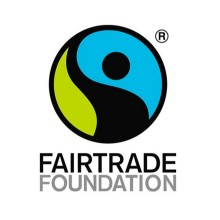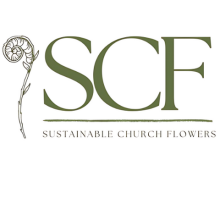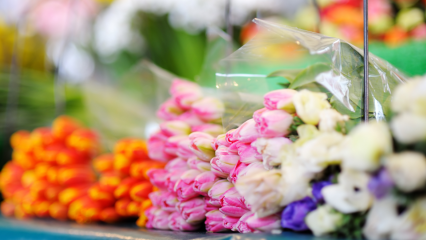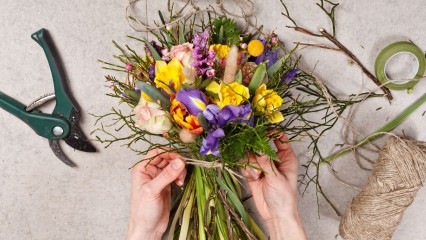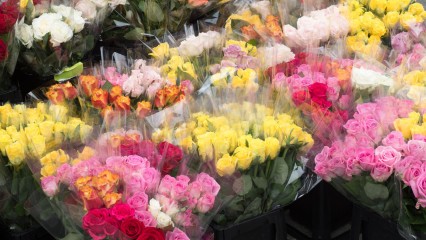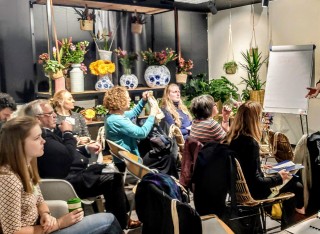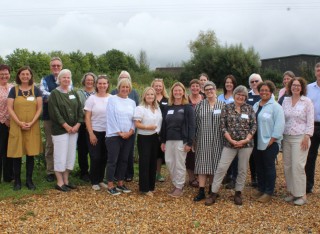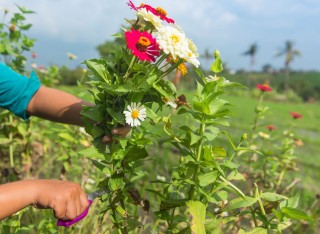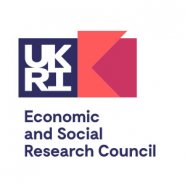
A green future for flowers: Advancing sustainability knowledge and practices in the floriculture sector
Start date
March 2024End date
February 2025Overview
The cut-flower sector generates $55 billion globally every year, but most consumers and flower sellers are unaware of significant sustainability challenges in supply chains, including high carbon and water footprints, environmental degradation and poor working conditions.
This ESRC IAA funded project led by Dr Jill Timms and a variety of partners, focuses on the pressing need to address the negative social and environmental impacts of the floriculture sector (which includes cut-flowers, foliage and plants), which is under-researched, and well behind others in acknowledging its contribution to the climate emergency and developing solutions to improve.
Cut-flowers have been a research focus for Dr Timms for over two decades. As a sociologist of work and the environment, she has been concerned with identifying key sustainability issues, the barriers to overcoming these and the role of collaboration in shifting expectations and practice, using the flower industry as a case study relevant to other global supply chains.
Flowers offer an opportunity to interrogate the climate challenges of the global capitalist system. As a product they need to travel from field to vase at lightning speed, often across vast distances. As living, they need particular care during production and transport, and consumers have high standards for aesthetics and lifespan. As a cultural object, flowers are filled with meaning and in nearly all cultures flowers are gifted items.
These factors together could offer more leverage to initiate change, but they also contribute to the precarious nature of demand and a continual race to the bottom on cost. There are serious opportunities to capitalise on this movement to change that need harnessing now to enable maximum impact for government and corporate policy, and instigating industry and consumer behaviour change.
Team

Partners Include:
Project Objectives
Four Key Sustainability Issues this project aims to address:
- Water - flowers are very thirsty, using considerable volumes of local water in production and transportation. This is problematic in terms of sometimes ‘exporting’ water from drought-prone countries (such as in East Africa), as well as in potential contamination from the run-off of chemicals used to increase flower volumes.
- Carbon Footprint -flowers can often have the highest carbon footprint of anything is a supermarket trolly. In the UK we import 90% of our flowers, with countries such as Kenya, Ethiopia, Tanzania and Columbia aggressively pursuing flower exports. These usually travel by air, sometimes flying to Dutch auction houses before then being transported to the end European destination.
- Poor labour conditions – can arise from precarious or lack of contracts, driven by the very high peaks and lows of flower demand (such as surges for Valentines or Mothers day). Health and safety concerns have also been raised over lack of training, PPE and illness from chemicals. In addition, gender discrimination and sexual harassment have been historically associated with some farms, given power-imbalances between often male supervisors (who can decide work appointment) and the majority female pickers and packers.
- Norms of floristry practice – have changed little in terms of: plastic-based materials used to store, sell and arrange products; lack of understanding of buying choices impacts – in terms of footprints and seasonality; poor waste disposal; and inability to inform consumers about sustainable flowers.
Expected Impact
- Greater recognition in the UK and beyond of the sustainability challenges of the flower section, providing education and solutions for implementing better practices with regards to flower production, sourcing, floristry and consumption.
- Ongoing provision of research and resources via a Knowledge Exchange Hub (sustainable until at least 2029), providing a platform to showcase impacts and facilitate education with a global reach.
- Internationally recognised expertise in sustainable floriculture, providing opportunities to inform and influence corporate and government policy on regulating and supporting sustainable practice
- A game changer in terms of normalising commitment to sustainable practices, having designed and published some of the world’s first principles, standards and certifications for sustainable flowers.
- An even stronger network of stakeholders to collaborate on continuous improvements, reviewing progress and setting more goals towards achieving a sustainable floriculture sector which celebrates, nurtures and improves the environment and lives of those working within the global industry, rather than damaging and exploiting to the detriment of the sustainability of our planet.
